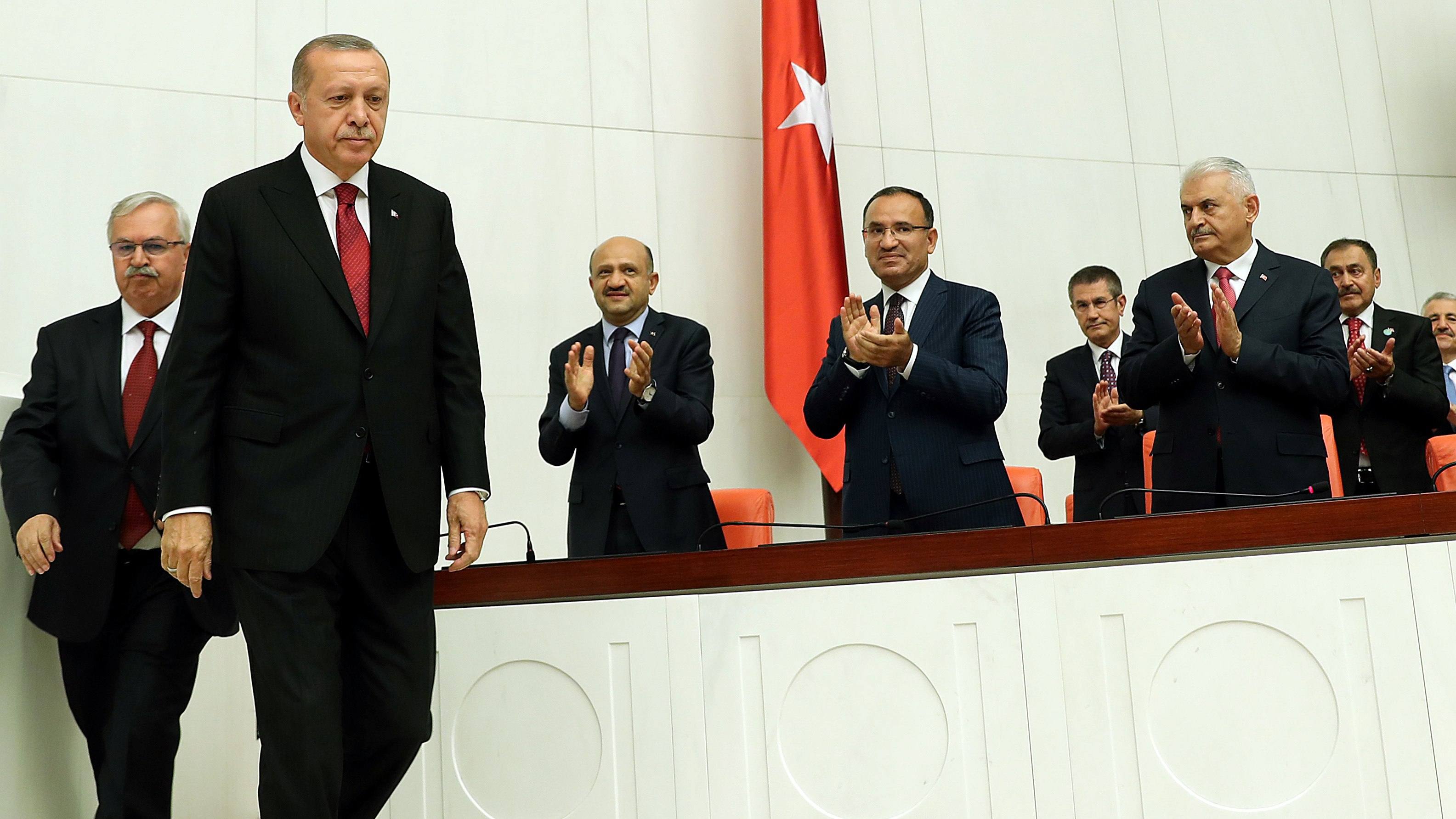Recep Tayyip Erdogan was sworn in on Monday as the first president of Turkey's new executive system.
This also marks that Turkey will transit into a presidential system from a parliamentary system.
Erdogan, who has been in power for more than 15 years as both prime minister and president, secured his second term by winning 52.5 percent of the votes in the June 24 presidential election.
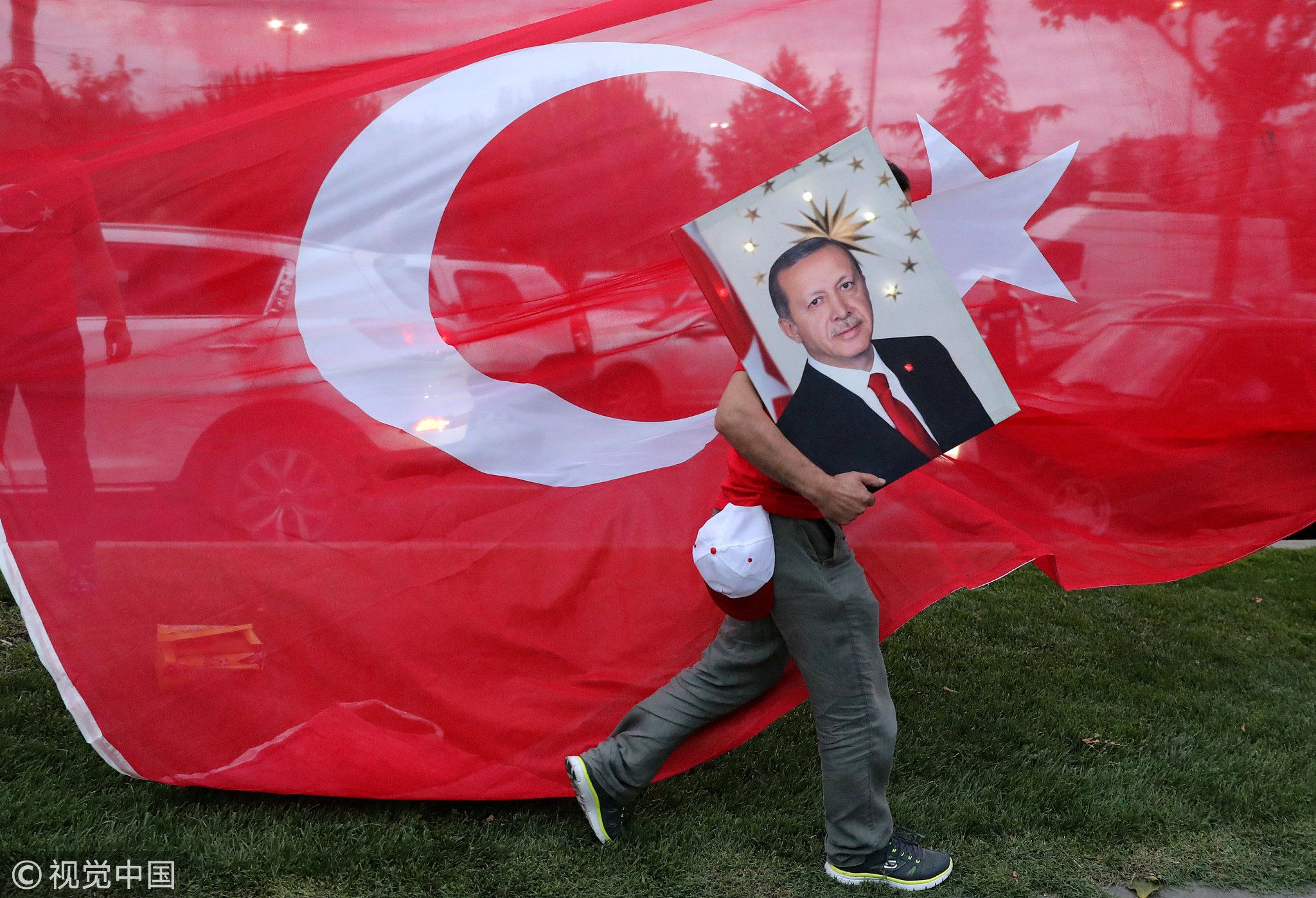
A supporter of Turkish President Tayyip Erdogan holds his picture in front of a Turkish flag, in front of Turkey's ruling AK Party (AKP) headquarters in Istanbul, Turkey, June 24, 2018. /VCG Photo
A supporter of Turkish President Tayyip Erdogan holds his picture in front of a Turkish flag, in front of Turkey's ruling AK Party (AKP) headquarters in Istanbul, Turkey, June 24, 2018. /VCG Photo
In April 2017, Turkish voters endorsed constitutional changes backed by the 64-year-old politician, which abolished the post of prime minister and replaced the parliamentary system of governance for a presidential one.
Launching the executive presidency which he fought hard to secure, Erdogan will also name a streamlined cabinet he says will push for growth to make Turkey one of the world's biggest economies.
"Turkey is entering a new era with the presidential oath ceremony on Monday," Erdogan told his ruling AK Party at the weekend, reported by Reuters on Monday.
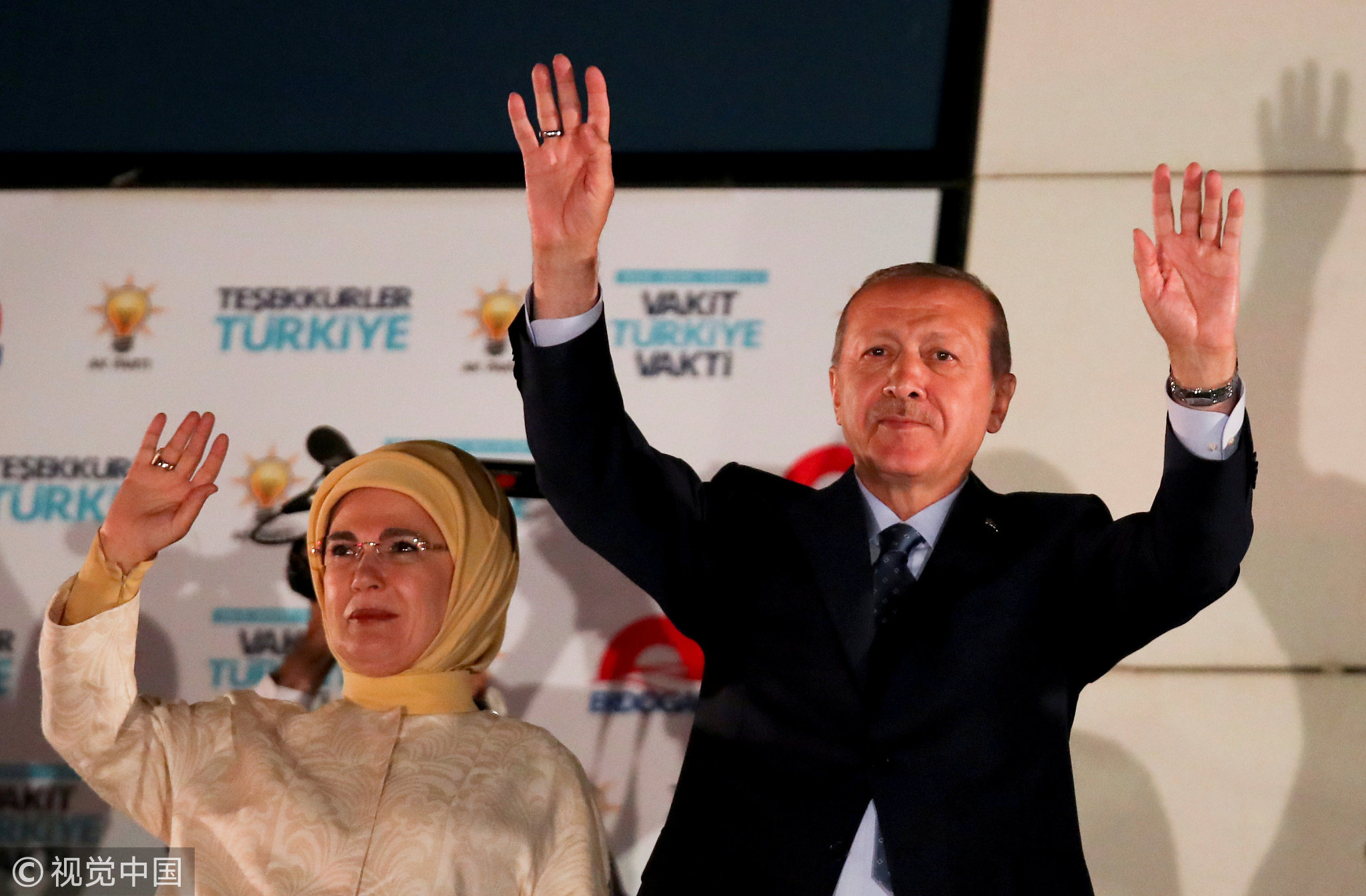
President Tayyip Erdogan and his wife Emine greet supporters in Ankara, June 25, 2018. /VCG Photo
President Tayyip Erdogan and his wife Emine greet supporters in Ankara, June 25, 2018. /VCG Photo
"With the power granted to us by the new presidential system, we will get quicker and stronger results."
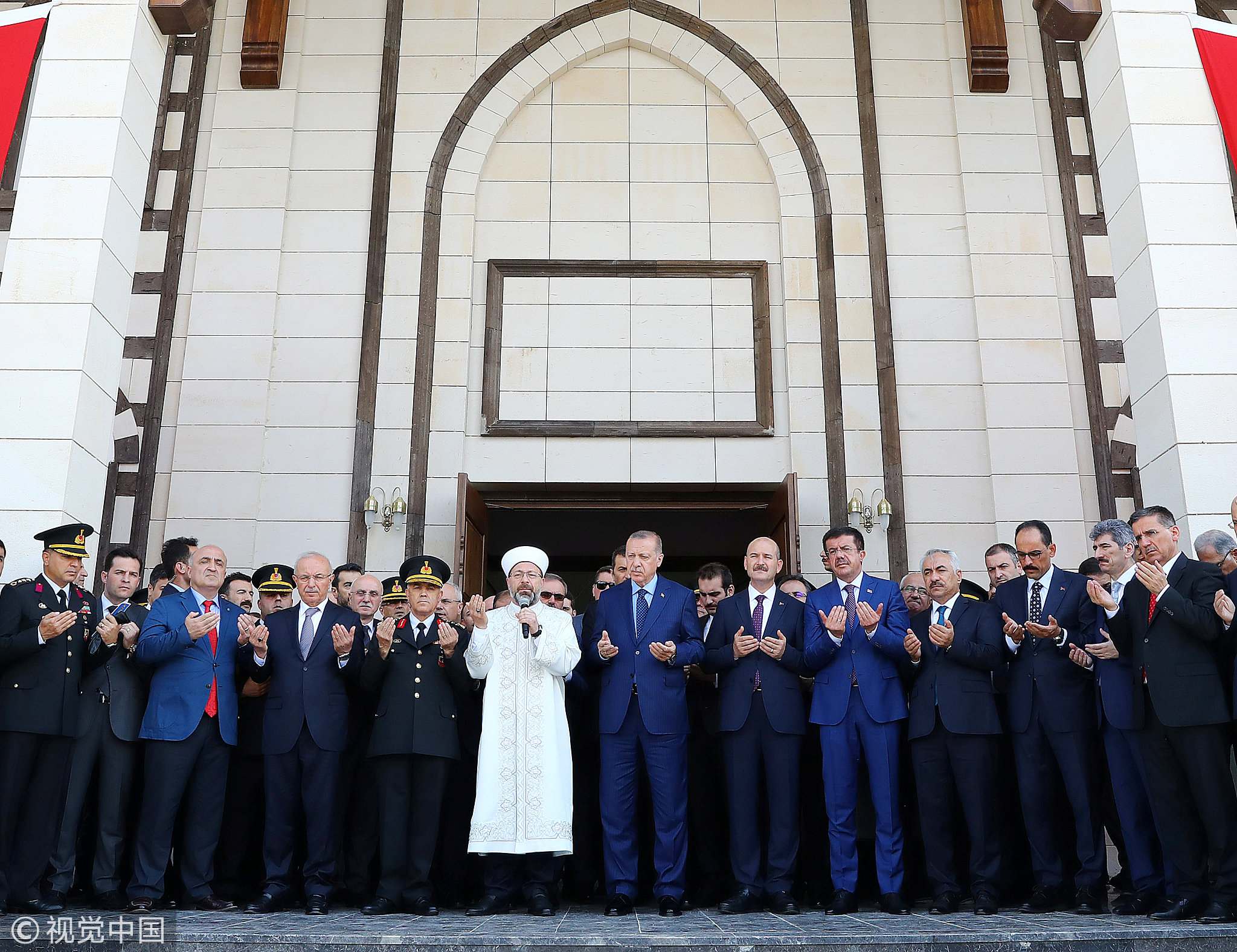
President Tayyip Erdogan and officials pray during an opening ceremony of a new mosque in a military school in Ankara, Turkey, June 29, 2018. /VCG Photo
President Tayyip Erdogan and officials pray during an opening ceremony of a new mosque in a military school in Ankara, Turkey, June 29, 2018. /VCG Photo
Erdogan has said he will announce the cabinet on Monday night, promising to make appointments from outside parliament and to slim down his ministerial team to 16 from more than 20.
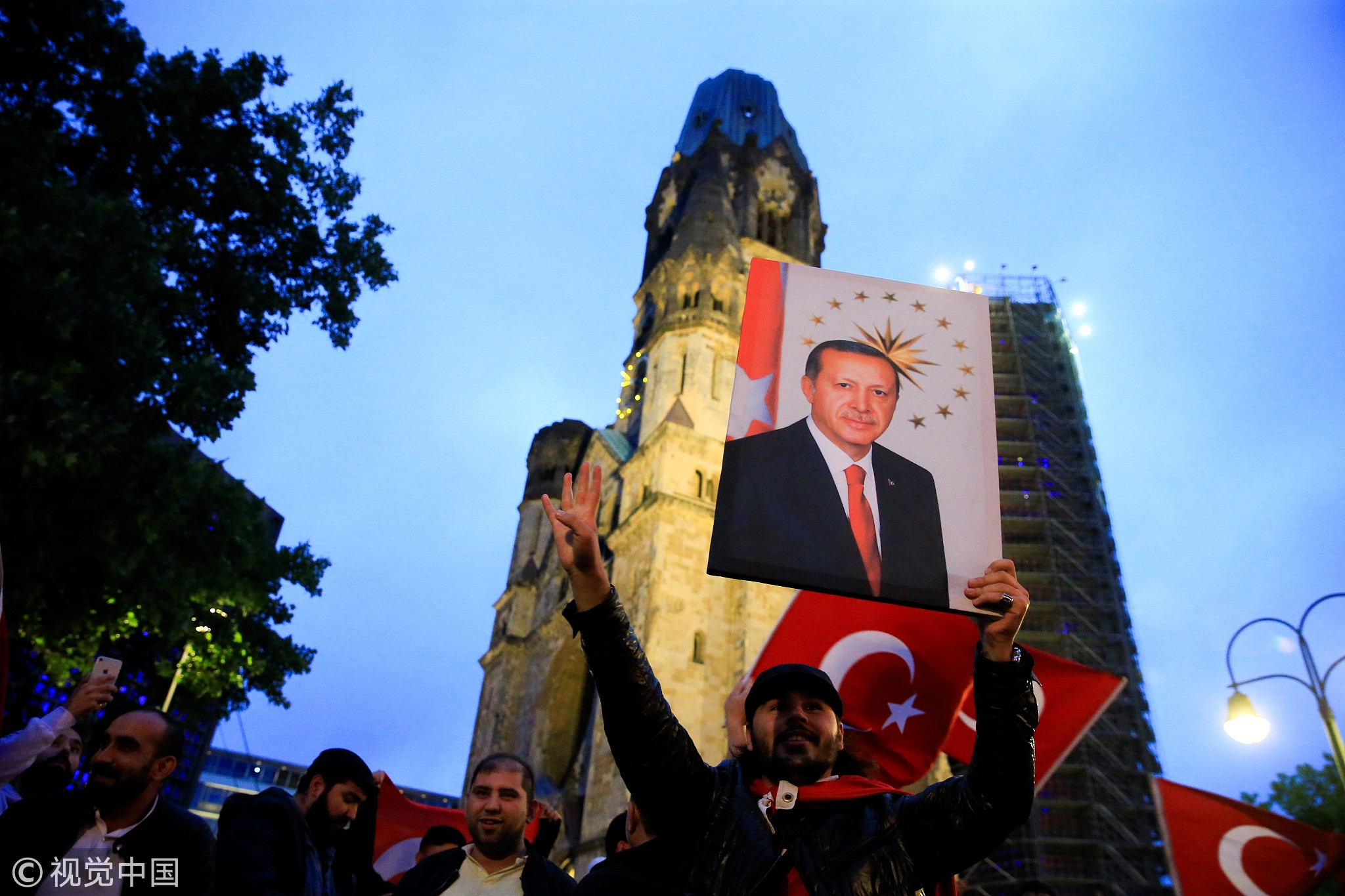
Erdogan supporters in Berlin, Germany holding portrait to support him, June 24, 2018. /VCG Photo
Erdogan supporters in Berlin, Germany holding portrait to support him, June 24, 2018. /VCG Photo
On Saturday he also said he would tackle high interest rates, inflation, and a wide current account deficit. "We will take our country much further by solving (these) structural problems of our economy," he said.
The post of prime minister will be scrapped, and Erdogan will select his own cabinet and regulate ministries and remove civil servants, all without parliamentary approval.
After his election victory two weeks ago, Erdogan said he would spare no effort to spur economic growth.
The Sino-Turkish relations have generally been on an upward trajectory in the past ten years or so since bilateral ties were elevated to the level of "strategic cooperation" in 2010.
Bilateral trade between Turkey and China rose to 27.8 billion US dollars in 2016 and reached 21.66 billion US dollars in the first 10 months of 2017.
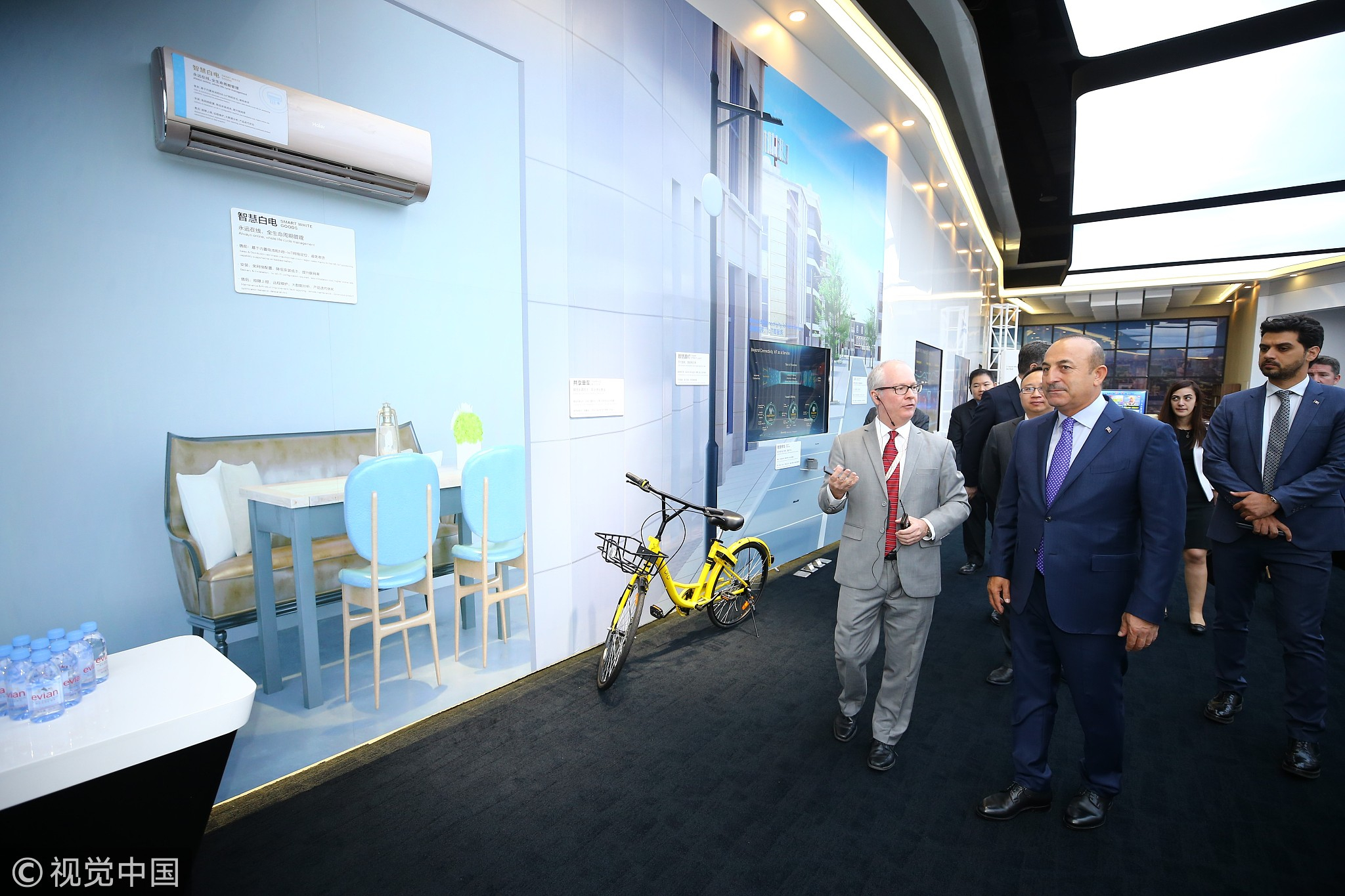
Turkish Foreign Minister Mevlut Cavusoglu (C) visits Research & Development (R&D) center of Huawei in Beijing, China, June 14, 2018. /VCG Photo
Turkish Foreign Minister Mevlut Cavusoglu (C) visits Research & Development (R&D) center of Huawei in Beijing, China, June 14, 2018. /VCG Photo
The China-initiated Asian Infrastructure Investment Bank (AIIB) and the Belt and Road Initiative (BRI) are two projects that will offer unprecedented opportunities for Turkey to benefit from, as long as it maintains active participation.
President Xi Jinping's special envoy, Luo Shugang, China's Minister of Culture and Tourism, attended the ceremony on Monday.
With Erdogan signals that his new term as Turkish president is going to focus on the economy, it raises hopes for more cooperation and deals of the two countries.
(Cover: Tayyip Erdogan arrives to take the oath of office as Turkish president at the Parliament in Ankara, Turkey, July 9, 2018. /Reuters Photo)
(With inputs from agencies)

